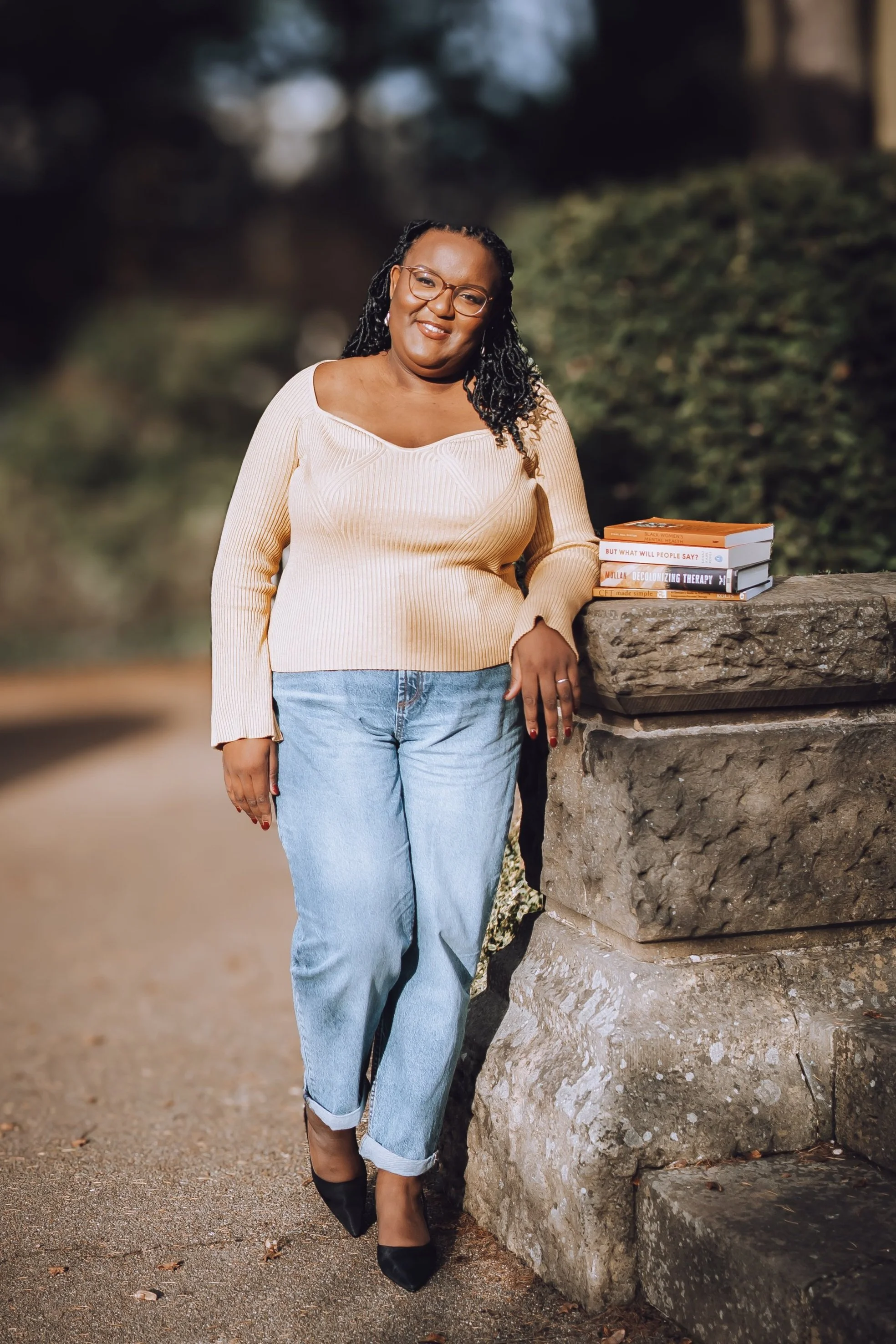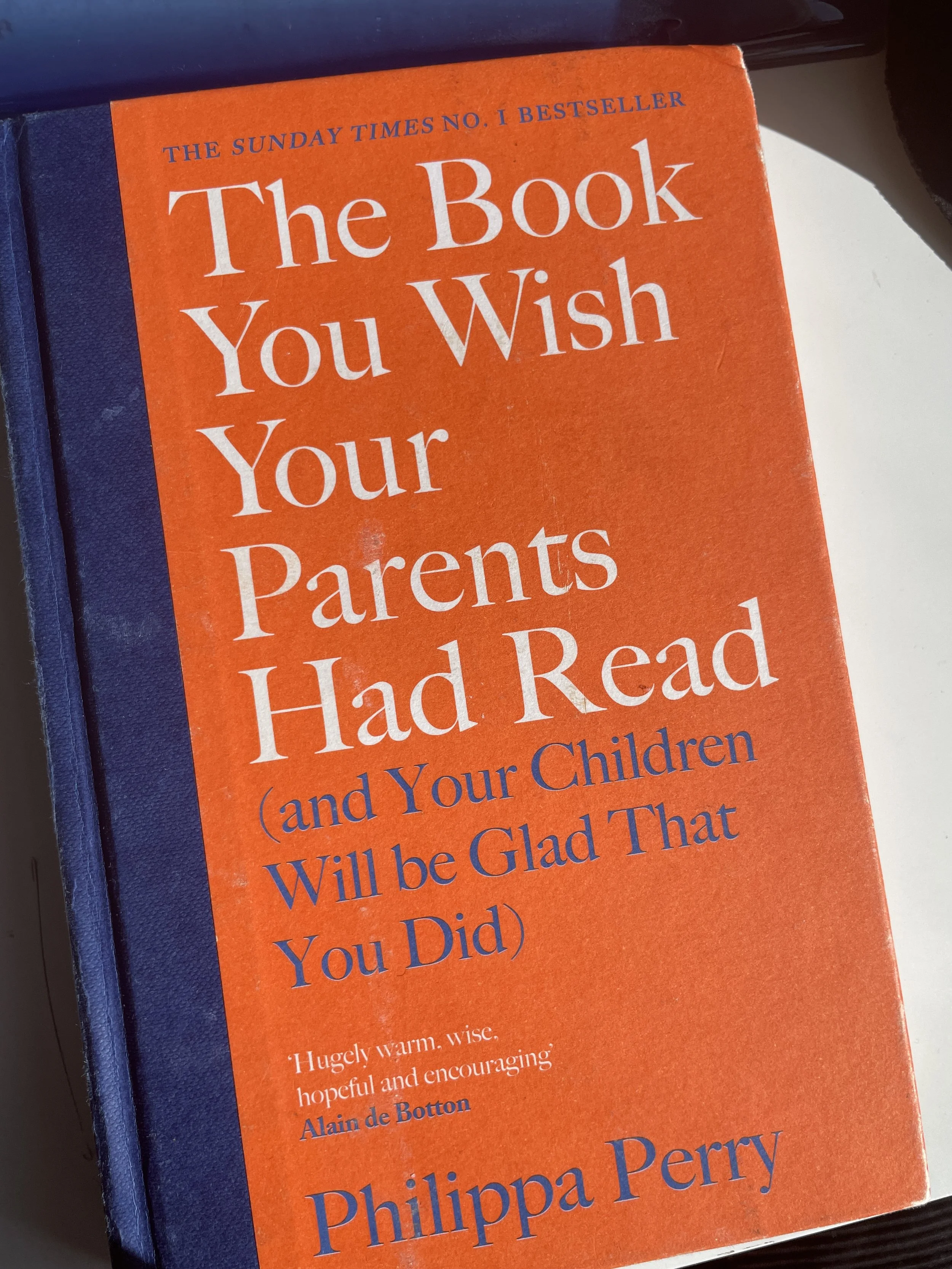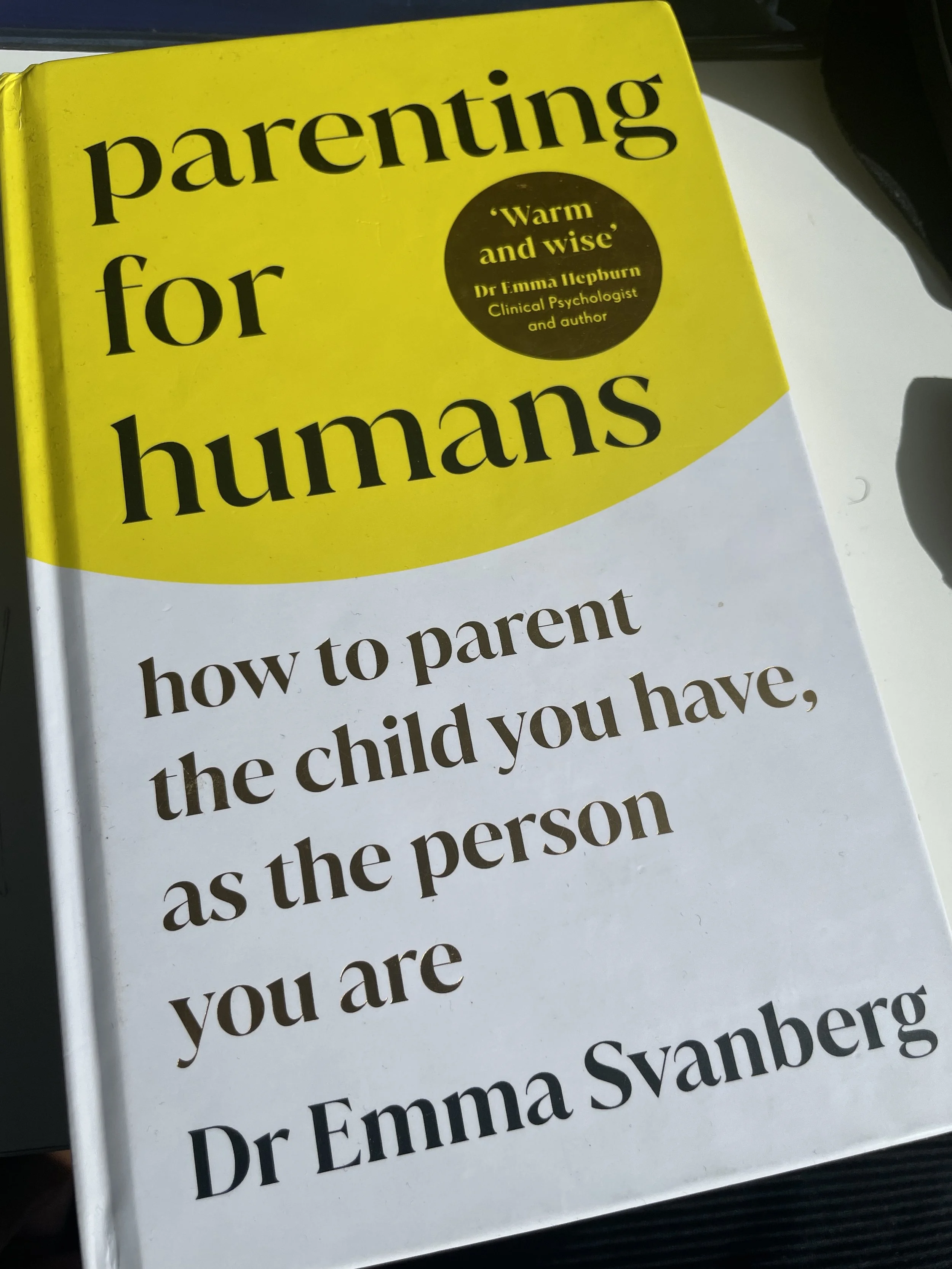Struggling with Perfectionism in Parenting? These 3 Resources Can Help
The Book You Wish Your Parents Had Read (and Your Children Will be Glad That You Did) by - Philippa Perry.
An image of the book The Book You Wish Your Parents Had Read (and your Children Will be Glad That You Did) by Philippa Perry.
You make sense, sis
There are 2 books that have helped me immensely in my parenting journey. The first is The Book You Wish Your Parents Had Read (and your Children Will be Glad That You Did) by Philippa Perry.
I believe this book was recommended by a friend either just before I had my first son or just after. It was a game changer. I still rely on many of the ideas in the book to this day and that is almost 6 years later. The biggest lesson it taught me was that I make sense. One of my favourite voices to listen to the topic of reparenting is Yolanda Renteria. She is a therapist based in Arizona and she often says, ‘you make sense’. Meaning you are not having just random big emotions, everything about your reactions makes sense if you pay attention to your story, your history.
Trying to do things differently: The challenge of reparenting whilst parenting
Let me explain, as a parent, I used to look at myself like, “What is going on with you?” “Why is this so hard?” Now a lot of what is hard is systemic. You are expected to parent like you don’t have a job and work like you don ‘t have children. Childcare costs are astronomical and you may not have solid reliable people to support you with childcare, the way your parents might have had when you were growing up. Cost of living, threats of war, living in a Black body, living in a disabled body, having care giving responsibilities, should I continue?
There are other things though. For instance, like me, you may know that you want to parent differently from how you were parented. You may have grandiose ideas of how you will be and then the baby is in your lap, you are sleep deprived and you are recognising you are ‘falling short’ and the expectation is just not meeting the reality. His book helped me see that even in all of the various issues, my reactions were not disproportionate as they initially seemed. I was making perfect sense, even if I didn’t yet fully understand myself.
Why I don’t typically like or read parenting books…
This is not your typical parenting book. (Neither of the books I’m going to mention on this resource list are). I don’t typically like parenting books because they tend to feel like putting on someone else's skin. Trying to practice what they say often feels like a fool’s errand. Even before I had kids, I’ve always known that I wouldn’t read parenting books and this is coming from someone who loves personal developments and self help books ok! But what I love about these books is that they are not about parenting, they are actually more about you as a parent.
Going back to go forward
The Book You Wish Your Parents Had Read taught me that the feelings that were coming up in my parenting experience were more about me and my experiences of being parented than they are about my child/children. This doesn’t mean she spends the whole book berating parents (that would be weird), but she doesn’t shy from the fact that we are parented imperfectly and she uses really helpful examples, to demonstrate how this can show up in our relationship with our kids. It is fascinating and immediately, I was transported into a new way of approaching my parenting.
Overwhelmed with feelings, paralysed by perfectionism
Before reading the book, I would be overcome with feelings that didn’t seem to match the moment. I would have big reactions to seemingly small things, I would feel sad in the middle of playing with cars with baby and be confused. In fact, I’m pretty sure I wouldn't fully take stock of the sadness. Until I read this book. It started to make sense.
I didn’t realise until reading this book how much I was trying to show up perfectly and how much pressure it was putting on me. And how jealous the little child in me was of all the ways I was showing up for my kids that she didn’t get.
I started to notice how trying to be a perfect parent was causing me to try to avoid all ruptures. It was causing me to catastrophise about every time I acted less than perfectly. This book taught me to expect ruptures, learn and practice how to repair. I started to learn how to relate to my kids and how to enjoy relating, how to grieve the ways I was not related to. (This was really hard and took a couple more years to really get into this as I didn’t realise at the time I was struggling with postpartum anxiety). I have since learned (and continue to learn) how to feel what the little child in me needed to feel, how to be there for her.
Learning new skills
Reading this book was like going on a ride. I loved how straight to the point it was. How she always made the reader feel like they could learn and change. It wasn’t insurmountable. But it was important.
I already came to the book feeling like I really wanted to parent differently to how I was parented but not quite sure what this would look like. This book made me stand to attention. It gave me a pathway and held my hand. I am forever grateful.
2) Parenting for Humans: How to Parent the Child you Have as the Person You Are by Dr Emma Svanberg.
An image of the book “Parenting for Humans: how to parent the child you have as the person you are” by Dr Emma Svanberg
You think you know, but you have no idea…(MTV Voice lol)
The second resource as I mentioned earlier is also a book. It’s called “Parenting for Humans: how to parent the child you have as the person you are” by Dr Emma Svanberg. Now this really is not a parenting book. It’s a book for parents. This right here?! INCREDIBLE. (Caveat, I haven’t actually finished it for reasons I will explain later but even still, it is still firmly on my top 3 list).
You know why? Because of the way it shattered what I thought parenting was about and invited me into something so different, so much better. Now I had been having my own niggling thoughts and feelings about this and this book gave a me a kind of permission to really go for it and challenge the ideas I had about parenting.
It starts with this quote, ‘“Some people seem to think of a child as clay in the hands of a potter. They start moulding the infant, and feeling responsible for the result. This is quite wrong" - Donald Winnicott’.
“Some people seem to think of a child as clay in the hands of a potter. They start moulding the infant, and feeling responsible for the result. This is quite wrong””
When I tell you this quote slapped me… I was like, “well duh” isn’t that what parenting is?
Mind you at this time I was deep into my deconstruction/ faith shift journey and was starting to see a lot of parallels between authoritarian parenting and the theology I inherited. I was rethinking both these areas and had made some significant changes in my life. Yet this idea that we mould children was still kinda there. (To be honest, I still think I hold this to an extent).
Whilst The Book You Wish Your Parents Had Read started to help me change from a more authoritarian to more authoritative parenting style, I still naturally held on to some feeling that it was solely my responsibility to mould these kids into something good. That who they turned out to be is a reflection of me. So when I saw this quote I was intrigued. TBH, I was low key offended.
The complexities of parenting Black kids in the UK
By this time, I had been a member of Dr Emma’s parenting community for some years and was being introduced to other ways of parenting and relating with my kids. But to be honest, a lot of these women are white and I noticed how their experiences of parenting would be different from mine. There is added risk in parenting a Black child in the UK. There are additional stressors that make it so that you can’t just ‘let them be themselves’ everywhere and at all times. It’s literally not safe. I wasn’t seeing this in the group and did not feel I could bring this perspective.
What I love about this book is the way Dr Emma invites you to bring all these unsaid things into the space to be considered. She asks so many good and helpful questions throughout the book. Instead of simply telling you things, she feels like a guide, ushering in your own wisdom. It is exquisitely written.
Invite all the parts of you to the table. They all have wisdom, even the inconvenient ones.
The most impactful part so far in the book is the way that it helped me make sense of how my different parts and my story were showing up in my parenting. I was able to see how overidentifying with some parts and squashing down other parts was negatively influencing my parenting and my relationship with my children. Instead of shutting parts down, I was reminded to invite them in to offer their wisdom and listen to what they were telling me.
This was hard and yet such a beautiful gift. I could do this better in other areas but in the parenting relationship, it was a challenging. Just that one chapter where she explores the different characters we have immediately changed things for me. With that insight I made a couple changes and it immediately improved my relationship with myself and my children. I literally mean immediately.
It’s a Heavy lift
This is a heavily lift book. It took me ages to read it because it brings up a lot of heavy stuff. I would read a couple pages and have to put it down for a week. I’d read again and need to go for a walk, shake my body, dance, cry, breathe. It was a LOT.
Thankfully, Dr Emma knows her stuff and she warns the reader about this before she goes into the heavy stuff. He continues to remind the reader to listen to their body, to engage their body in order to process the work. I am grateful for these nudges and reminders. They are so needed.
Whilst I know it is a combination of therapy, books like this, deep convos with dear friends that have helped me as a person and parent. It really does feel like I read this book (or the two thirds of it I’ve read) has fundamentally changed my relationship with myself and my children. I feel so much more able to see my difficult parts with compassion and extend that same compassion to my children when they most need it.
I will forever be grateful to Dr Emma for this book. It is a masterpiece and a huge gift. I know my kids will need less therapy hours when they are older because of this book.
Whilst we often want quick answers, what we often need is a guide for the journey to help us find our own
If you haven’t read these books and you are a parent or spend time with children, please give yourself the gifts of these books.
Instead of bombarding you with things to do and tricks to try, or scripts to say, these books allow you to tap into your own wisdom. I cannot describe how incredibly freeing and empowering this is. Especially if you are someone who struggles with perfectionism and feels that getting it ‘right’ is the most important thing.
3. My final resources are Loop earplugs. That’s it. (As you can see, I have much more to say about books!)
For real though, the Loops have been so helpful. It’s been good for me to accept that my kids are loud and I am sensitive to noise. Perhaps I was trying to push through in some ways. Maybe I was worried I would become too used to them, and wouldn’t be able to hack it if I lost them or forgot them somewhere. Perfectionism is often an attempt to try to manage fear or anxiety.
So instead of worrying about a future problem that may never even happen or overpreparing my buying 45 pairs . I simply decided to put them on my Christmas wish list last year and enjoy the benefits of silence… or at least some quiet. This has helped me a lot and helped my kids have more more time without me telling them to be quiet.
I’ve recently picked up these two books to reread the first and to read the final part of the second book. I’ve needed a reminder of what I learned those years ago.
Final Reflections
These three resources—two books and a small but mighty tool—have helped me release the grip of perfectionism in parenting.
Instead of chasing impossible standards, I’ve learned to:
See my reactions with compassion.
Allow ruptures and practice repair.
Recognize how my own story shows up in my parenting.
Use practical tools to care for myself in the moment.
If you’re struggling with parenting perfectionism, I can’t recommend these resources enough. They won’t tell you how to be a “perfect parent.” Instead, they’ll help you step into a more grounded, compassionate version of yourself—the parent your children actually need.
So, what reminders do you need right now? What resources might help you release the pressure of perfection and step into parenting with more presence and grace?



